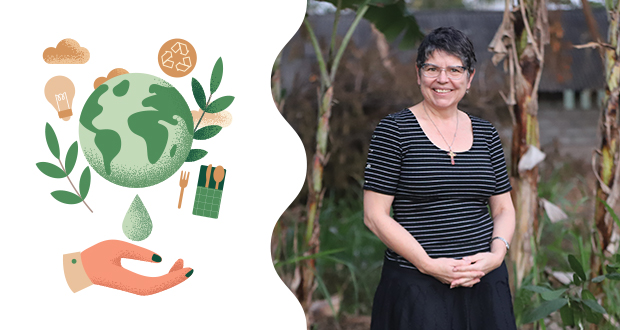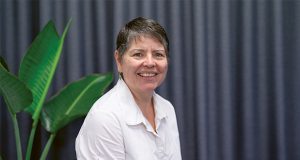Queensland Synod General Secretary Rev Heather den Houting reflects on the devastating consequences of climate change for those in the Asia-Pacific and her experience at the 2019 UnitingWorld conference in Bali where climate justice was a key topic.
I wonder why we don’t listen to our Asia-Pacific partners more closely when it comes to issues around climate change?
We know them, and through colonisation and migration we are inextricably linked with them. Yet, as these communities share their stories of real, devastating impacts of changing climate, I see the public deflection of dialogue away from the consequences of that change. Instead, we debate climate science.
This leads to all kinds of distortions around our approach to their lived reality. Instead of a considered, sophisticated and coordinated response to the community disruptions that are already being experienced, our public policy settings are around minimisation and rejection. While great work is being done behind-the-scenes, this denial of sensible and strategic international dialogue is not to our credit.
I wonder why we don’t clamour to partner with our Asia-Pacific Christian theologians more closely? All the barriers of language and experience should fall away when it comes to listening to how the Christian church asks questions that are so foundational to who we are in God. Conversations around theodicy (where is God in the disaster) would move us into spaces of an active, engaged, pertinent theology for our times.
I was a guest at a UnitingWorld-hosted forum around climate justice in Bali in early August 2019. Representatives from Christian churches across the Asia-Pacific region gathered to collaborate around climate emergency responses in their communities. Nobody in the room was a stranger to managing climate disasters. All had recent experience of working with first and second responders to events such as cyclones, floods, typhoons, landslides, drought and fires. We do this kind of thing in the Queensland Synod through our disaster recovery work.
This means we could share stories of the importance of ensuring all the needs of communities were addressed in these circumstances. Responses which are planned and include the immediate physical recovery, but then evolve into the cultural, emotional and spiritual responses that are essential in healthy communities.
What was a new experience for me was the raw and profound stories of the changes in rainfall, drought, livelihoods and the growing of crops. Not framed as a complaint about the weather, but a conversation which acknowledged that things had shifted in the very nature of their community practices. The conversations were about inevitable loss, change and adaptability. There was no debate about climate science, the conversation was about caring for communities who were facing foundational transition.
As a person who chooses my fruit and vegetables from a shelf, I am still very protected from the consequences of climate change. You may not be. You may be seeing this in drought, or in fires or in the devastation of crops from adverse weather events. A poignant story was told in the gathering about how common childhood fruits from across the regions had now disappeared. These stories of loss and grief made the symbolic planting of endangered fruit trees in the grounds of the conference centre a particularly telling act.
And then there was the theology. Rev James Bhagwan is the General Secretary of the Pacific Conference of Churches. As the keynote speaker he was invited to lead the group through issues of climate justice. This was tough going—theodicy always is—lament and complaint, sin/repentance/testing and challenging. People look for quick answers and can therefore spiritually condemn a community devastated by a cyclone.
James reminded us that the church’s call is to respond. Instead of judgement and condemnation, the church is called to live out compassion and generosity. And this requires intentional preparation. Being prepared to be generous is an element of discipleship, a mark of resilience and a sign of faith and visible hope.
And so for us, how are we theologically prepared in this space? When we think about climate refugees, what does our compassion look like for those who must leave? How are we generous with those who will not leave? What does this mean for people who are rooted in their land?
When I am asked to answer these questions, I will call on those who are experts in the field: our Asia-Pacific partners. Those who know it, live it and are being changed by it. I am grateful that God’s abundance and generosity was revealed to me again through this experience.
Rev Heather den Houting
 JourneyOnline
JourneyOnline







